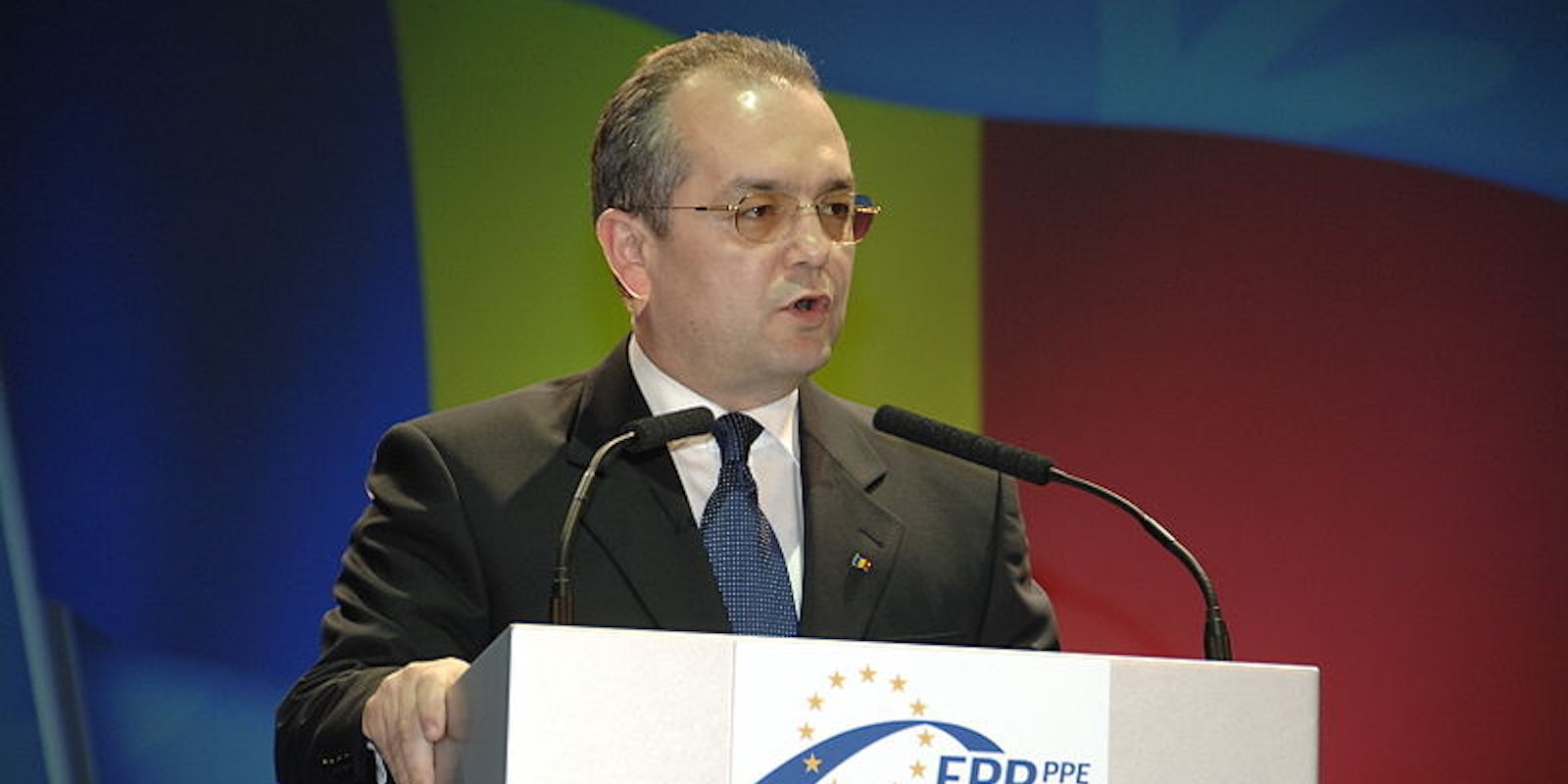Romania may not enforce the Anti-Counterfeiting Trade Agreement (ACTA) following a major change in the country’s political landscape.
Romanian Prime Minister Emil Boc has resigned in the wake of anti-government protests over austerity measures and the economy. There have also been public demonstrations against the government’s signing of ACTA; Boc recently admitted he didn’t understand the circumstances under which the country signed the agreement.
“I want to tell you that I have decided to give up the government’s mandate. I made the decision in order to relieve political and social tension in the country and in order not to lose what the Romanians won with so much suffering—the country’s economic stability.”
—Emil Boc
Victor Ponta, the leader of the country’s opposing Social Democratic Party, had asked the government why ACTA had been signed without holding a public debate beforehand. The government did not answer his question before Boc’s resignation.
Ponta noted that if a coalition of three opposition parties takes power following an election—scheduled to take place in November but may now be moved forward—it will block the enforcement of ACTA until it has been discussed with a civil society.
Romania’s Ministry of Economy, meanwhile, has launched a public debate over ACTA, which critics claim is more aggressive than two contentious pieces of proposed U.S. legislation, the Stop Online Piracy Act (SOPA) and Protect IP Act (PIPA).
The ministry claims the treaty must pass eight procedural stages, including ratification, before it can be enforced by Romania.
Romania’s division over ACTA mirrors the regret of a Slovenian ambassador after she signed the document on behalf of her country. Helena Drnovsek Zorko, Slovenia’s ambassador to Japan, said she only signed ACTA because her government told her to.
ACTA, which was signed last month by the European Union and 22 of its member states, has become a hotbed topic in many European countries, following the widespread protests against SOPA and PIPA.
ACTA has also been the subject of protests in Poland, while further demonstrations are set to take place across Europe this Saturday. The Czech Republic’s Personal Data Protection Office has criticized the treaty, while the country’s prime minister has suspended the ratification of ACTA pending an impact-analysis study.
Not everyone is opposed to ACTA, however. The National Association of the Exporters and Importers in Romania claims the agreement should be enforced.
Photo by eppofficial
